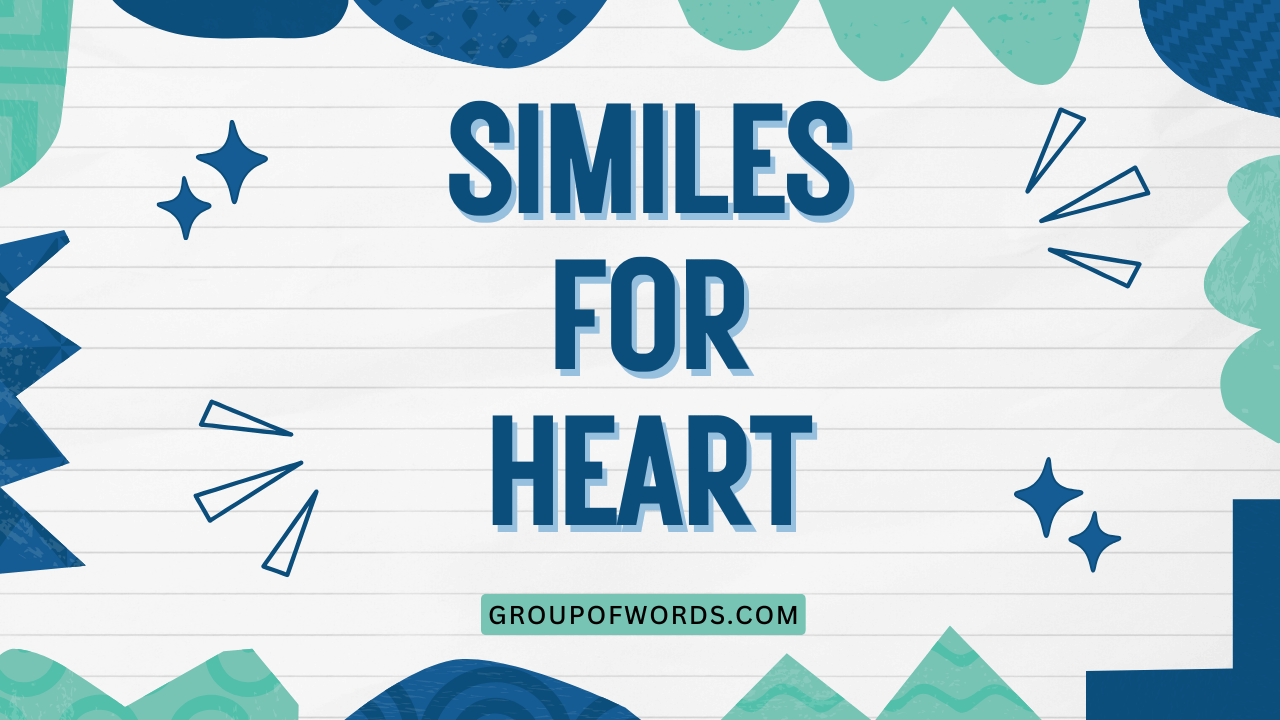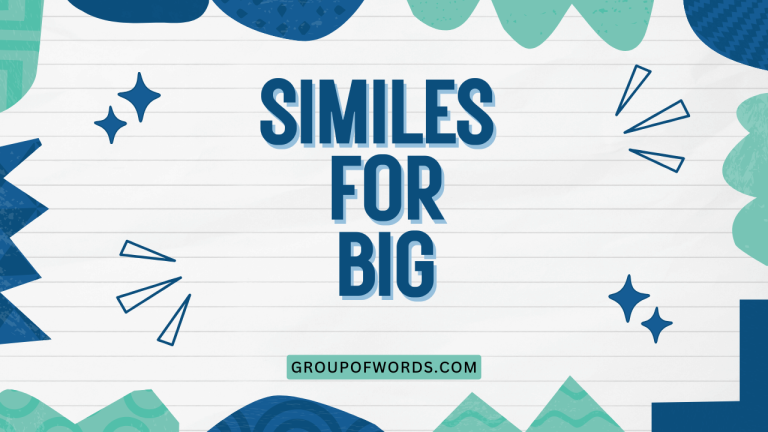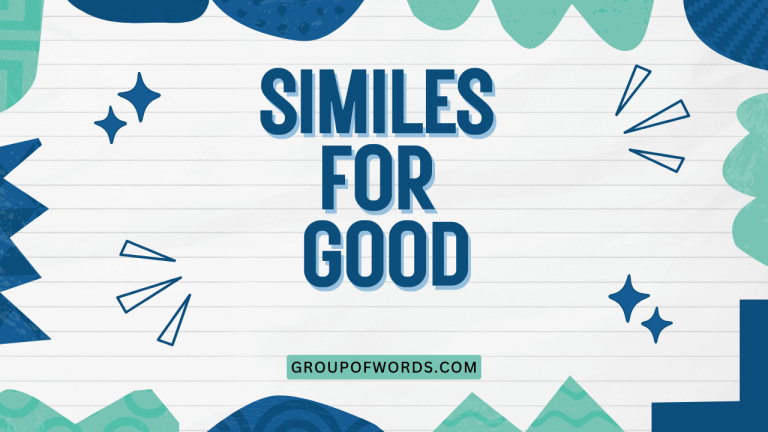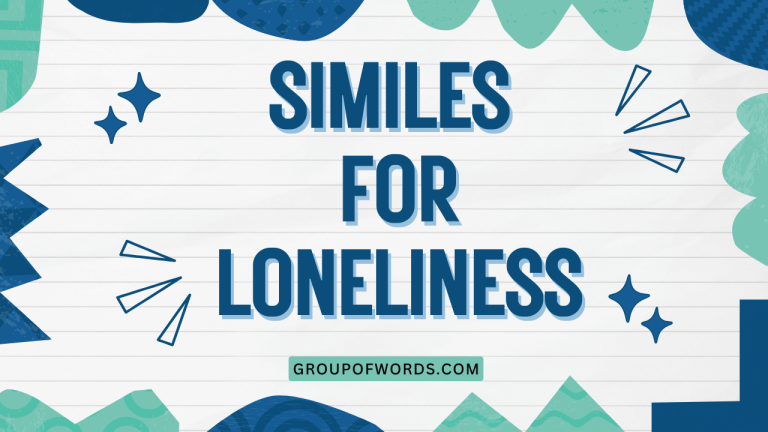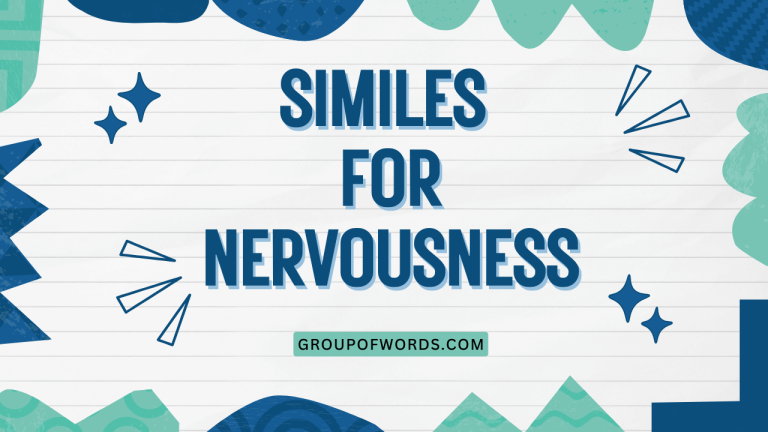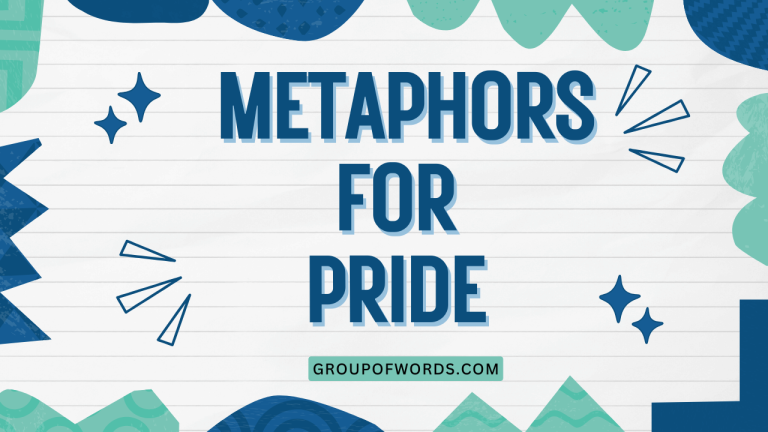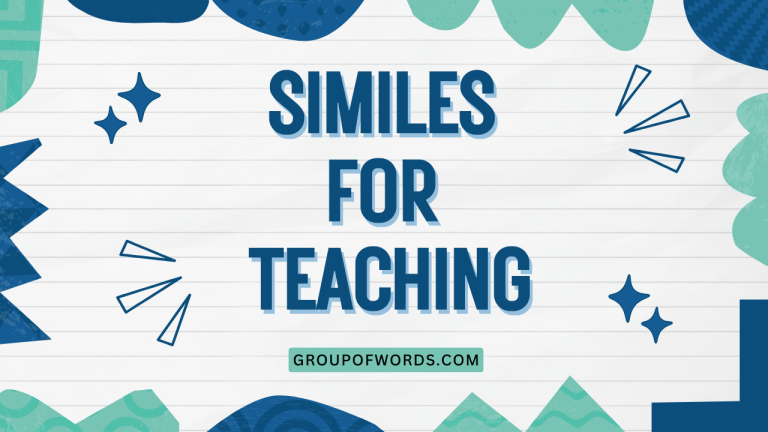Similes for Heart: A Comprehensive Guide
Similes are powerful tools in the English language, allowing us to create vivid comparisons and paint compelling pictures with words. When it comes to expressing emotions and describing the complexities of the human heart, similes can be particularly effective.
This article delves into the world of similes for “heart,” exploring their definitions, structures, usages, and common pitfalls. Whether you’re a student, writer, or simply someone looking to enhance your communication skills, this guide will provide you with a thorough understanding of how to use similes to describe the heart in a meaningful and impactful way.
This comprehensive guide is designed for English language learners of all levels, from beginners to advanced speakers. By exploring the nuances of similes, you will gain a deeper appreciation for the expressive potential of the English language and enhance your ability to communicate effectively and creatively.
Table of Contents
- Definition of Simile
- Structural Breakdown of Similes
- Types of Similes for Heart
- Examples of Similes for Heart
- Usage Rules for Similes
- Common Mistakes with Similes
- Practice Exercises
- Advanced Topics: Metaphor vs. Simile
- Frequently Asked Questions
- Conclusion
Definition of Simile
A simile is a figure of speech that directly compares two different things, typically using the words “like” or “as.” Its primary function is to enhance description and create a more vivid and relatable image in the reader’s or listener’s mind. Similes help to transfer qualities from one object or concept to another, making abstract ideas more concrete and understandable.
In essence, a simile asserts that one thing shares a specific characteristic or quality with another, creating a connection that enriches the meaning of the original subject. For example, saying “Her heart was like a stone” implies that her heart was cold, heavy, and unfeeling, just like a stone.
Structural Breakdown of Similes
The basic structure of a simile consists of three key components:
- The Subject: The thing being described (in our case, “heart”).
- The Connecting Word: Typically “like” or “as.”
- The Object of Comparison: The thing the subject is being compared to.
The formula can be represented as: Subject + Connecting Word + Object of Comparison. Understanding this structure is crucial for creating effective and grammatically correct similes. The object of comparison provides a familiar point of reference that the audience can easily grasp.
For example, in the simile “His heart was as cold as ice,” “his heart” is the subject, “as” is the connecting word, and “ice” is the object of comparison. The simile suggests that his heart lacks warmth and empathy, similar to the frigid nature of ice.
Types of Similes for Heart
Similes for the heart can be categorized based on the emotion or quality they aim to convey. Here are some common categories:
Similes for a Loving Heart
These similes describe a heart filled with love, affection, and warmth. They often use imagery of light, openness, and tenderness.
Similes for a Sad Heart
These similes portray a heart burdened by sorrow, grief, and pain. They frequently employ imagery of weight, darkness, and fragility.
Similes for a Fearful Heart
These similes depict a heart gripped by fear, anxiety, and apprehension. They often use imagery of trembling, confinement, and vulnerability.
Similes for a Strong Heart
These similes illustrate a heart that is resilient, courageous, and unwavering. They commonly use imagery of strength, stability, and endurance.
Similes for a Vulnerable Heart
These similes describe a heart that is open, exposed, and susceptible to emotional harm. They often use imagery of fragility, tenderness, and sensitivity.
Examples of Similes for Heart
The following sections provide extensive examples of similes for the heart, organized by the categories discussed above. Each table contains a variety of similes to illustrate the different ways you can use this figure of speech to describe the heart.
Similes for a Loving Heart
Similes for a loving heart often evoke feelings of warmth, light, and expansiveness. They highlight the positive and nurturing aspects of love.
The table below provides examples of similes that describe a heart filled with love. Each simile offers a unique perspective on the nature and intensity of love.
| Simile | Explanation |
|---|---|
| Her heart was like a warm fire, always offering comfort and light. | Implies a heart that radiates warmth and provides solace. |
| His heart was as big as the ocean, encompassing all with love. | Suggests boundless love and acceptance. |
| Her heart beat like a hummingbird’s wings, fluttering with excitement and affection. | Conveys the feeling of excitement and tender affection. |
| His heart was like a blooming garden, overflowing with love and beauty. | Suggests a heart that is flourishing with love and positive emotions. |
| Her heart was as soft as a feather, gentle and tender in her affections. | Implies a gentle and tender nature in matters of love. |
| His heart was like a golden sun, radiating love and happiness to everyone around him. | Suggests that the person’s love brings joy and happiness to others. |
| Her heart was as open as a book, ready to share its love with the world. | Implies a willingness to share love and emotions freely. |
| His heart was like a gentle breeze, bringing comfort and peace to those he loved. | Suggests a calming and comforting presence. |
| Her heart was as bright as a star, shining with love and hope. | Implies a heart full of hope and love that shines brightly. |
| His heart was like a loyal dog, always faithful and devoted. | Suggests unwavering loyalty and devotion in love. |
| Her heart was as sweet as honey, full of kindness and affection. | Implies a heart that is kind, affectionate, and pleasing. |
| His heart was like a mother’s embrace, always warm and comforting. | Suggests a heart that provides comfort and security. |
| Her heart was as pure as snow, untainted by negativity or malice. | Implies a heart that is innocent and free from negative emotions. |
| His heart was like a river, flowing with love and compassion. | Suggests a constant and abundant flow of love and compassion. |
| Her heart was as light as a cloud, floating with happiness and joy. | Implies a heart filled with happiness and a sense of lightness. |
| His heart was like a songbird, singing with love and joy. | Suggests a heart that expresses love through joy and happiness. |
| Her heart was as deep as the sea, filled with endless love and devotion. | Implies a boundless and profound capacity for love. |
| His heart was like a lighthouse, guiding others with love and hope. | Suggests a guiding and supportive presence in matters of love. |
| Her heart was as radiant as the sun, warming up every soul it touched. | Implies a heart that brings warmth and positivity to others. |
| His heart was like a shelter, always providing safety and love. | Suggests a heart that offers protection and unconditional love. |
| Her heart was as vibrant as a rainbow, filled with love’s colors. | Implies a heart that is colorful, lively, and full of love. |
| His heart was like a gentle flame, steadily burning with affection. | Suggests a constant and unwavering affection. |
| Her heart was as tender as a rose petal, delicate and full of love. | Implies a heart that is delicate, tender, and full of love. |
| His heart was like a peaceful dove, symbolizing love and harmony. | Suggests a heart that represents peace, love, and harmony. |
| Her heart was as giving as a tree, offering love without asking for anything in return. | Implies a heart that gives love freely and unselfishly. |
| His heart was like a cozy blanket, wrapping everyone in warmth and love. | Suggests a comforting and warm love that embraces others. |
| Her heart was as resilient as a vine, always growing and reaching out with love. | Implies a heart that continues to grow and express love despite challenges. |
Similes for a Sad Heart
Similes for a sad heart often use imagery of weight, darkness, and fragility to convey the burden of sorrow and grief.
The table below provides examples of similes that describe a heart filled with sadness. These similes capture the feeling of heaviness and despair.
| Simile | Explanation |
|---|---|
| Her heart was like a lead weight, dragging her down into despair. | Implies a heart that is heavy with sadness and despair. |
| His heart was as dark as a moonless night, devoid of hope and joy. | Suggests a heart that is completely without hope or happiness. |
| Her heart was like a shattered vase, broken into a million pieces. | Conveys the feeling of being irreparably broken and damaged. |
| His heart was as empty as a deserted house, echoing with loneliness. | Suggests a profound sense of emptiness and isolation. |
| Her heart was like a dried-up well, unable to offer any comfort or solace. | Implies a heart that is depleted and unable to provide emotional support. |
| His heart was as cold as a tombstone, devoid of warmth and emotion. | Suggests a heart that is unfeeling and emotionally numb. |
| Her heart was like a wilting flower, slowly losing its beauty and vitality. | Implies a heart that is fading and losing its zest for life. |
| His heart was as heavy as a storm cloud, laden with sorrow and grief. | Suggests a heart that is burdened with overwhelming sadness. |
| Her heart was like a silent scream, filled with unspoken pain and anguish. | Implies a deep and unexpressed level of emotional suffering. |
| His heart was as fragile as glass, easily shattered by harsh words or actions. | Suggests a heart that is easily hurt and broken. |
| Her heart was like a wounded bird, struggling to fly with broken wings. | Implies a heart that is struggling to overcome emotional pain. |
| His heart was as lost as a ship without a compass, adrift in a sea of sadness. | Suggests a feeling of being directionless and lost in sorrow. |
| Her heart was like a locked diary, holding secrets of pain and regret. | Implies a heart that is concealing deep emotional wounds. |
| His heart was as numb as frostbite, unable to feel anything at all. | Suggests a complete emotional numbness as a result of sadness. |
| Her heart was like a fading photograph, slowly losing its colors and memories. | Implies a heart that is losing its connection to joyful memories. |
| His heart was as torn as a tattered flag, damaged by the storms of life. | Suggests a heart that has been damaged by life’s hardships. |
| Her heart was like a broken mirror, reflecting only distorted images of the past. | Implies a heart that is haunted by negative memories. |
| His heart was as heavy as a mountain, weighing him down with grief. | Suggests an overwhelming sense of grief and sorrow. |
| Her heart was like a somber melody, filled with melancholic notes. | Implies a heart that expresses sadness through a melancholic tone. |
| His heart was as still as a frozen lake, reflecting the coldness of despair. | Suggests a heart that is still and lifeless due to despair. |
| Her heart was like a heavy chain, binding her to the past and preventing her from moving forward. | Implies a heart that is trapped by past sorrows and regrets. |
| His heart was as quiet as a graveyard, filled with the ghosts of lost love. | Suggests a heart that is haunted by the memory of lost love. |
| Her heart was like a closed book, its pages filled with unread stories of sorrow. | Implies a heart that holds untold stories of sadness and suffering. |
| His heart was as dark as a cave, hiding the pain and anguish within. | Suggests a heart that is concealing deep emotional pain. |
| Her heart was like a shattered dream, broken beyond repair. | Implies a heart that has experienced a devastating loss of hope. |
| His heart was as fragile as a snowflake, easily melted by the warmth of emotion. | Suggests a heart that is easily affected by emotional experiences, particularly sadness. |
Similes for a Fearful Heart
Similes for a fearful heart often depict trembling, confinement, and vulnerability. They highlight the anxiety and apprehension associated with fear.
The table below provides examples of similes that describe a heart filled with fear. These similes capture the feeling of unease and dread.
| Simile | Explanation |
|---|---|
| Her heart was like a trapped bird, fluttering wildly in her chest. | Implies a heart that is anxious and trying to escape from a fearful situation. |
| His heart was as cold as ice, frozen with terror. | Suggests a heart that is paralyzed by fear. |
| Her heart was like a drum, beating loudly with anxiety. | Conveys the feeling of a rapid and erratic heartbeat due to fear. |
| His heart was as small as a pea, shrunken with fear. | Suggests a heart that is overwhelmed and diminished by fear. |
| Her heart was like a mouse, scurrying to escape from a cat. | Implies a heart that is desperately trying to avoid danger. |
| His heart was as tight as a knot, constricted with fear. | Suggests a heart that is tense and restricted by anxiety. |
| Her heart was like a fragile egg, easily broken by the slightest threat. | Implies a heart that is extremely vulnerable and easily frightened. |
| His heart was as shaky as a leaf in the wind, trembling with fear. | Suggests a heart that is unstable and easily shaken by fear. |
| Her heart was like a locked room, hiding its fear from the world. | Implies a heart that is concealing its fear from others. |
| His heart was as jumpy as a frog, startled by every noise. | Suggests a heart that is easily startled and on edge. |
| Her heart was like a dark alley, filled with hidden fears and anxieties. | Implies a heart that is harboring deep-seated fears. |
| His heart was as silent as a tomb, holding its breath in fear. | Suggests a heart that is holding its breath and trying to remain unnoticed. |
| Her heart was like a ticking time bomb, filled with impending doom. | Implies a heart that is filled with a sense of impending disaster. |
| His heart was as cold as steel, hardened by fear. | Suggests a heart that has become hardened as a defense mechanism against fear. |
| Her heart was like a spider web, easily ensnared by fear. | Implies a heart that is easily trapped by anxiety and fear. |
| His heart was as weak as water, unable to withstand the pressure of fear. | Suggests a heart that is easily overwhelmed by fear. |
| Her heart was like a frightened child, seeking comfort and safety. | Implies a heart that is vulnerable and longing for reassurance. |
| His heart was as heavy as stone, weighed down by fear. | Suggests a heart that is burdened by the weight of fear. |
| Her heart was like a shadow, always lurking in the corners of her mind. | Implies a heart that is haunted by persistent fears. |
| His heart was as brittle as glass, easily shattered by fear. | Suggests a heart that is easily broken and overwhelmed by fear. |
| Her heart was like a lone wolf, howling in the wilderness of fear. | Implies a heart that feels isolated and alone in its fear. |
| His heart was as restless as the sea, unable to find peace in fear. | Suggests a heart that is constantly agitated and unable to find peace. |
| Her heart was like a haunted house, filled with the ghosts of past fears. | Implies a heart that is haunted by past traumatic experiences. |
| His heart was as paralyzed as a statue, unable to move in fear. | Suggests a heart that is rendered immobile by overwhelming fear. |
Similes for a Strong Heart
Similes for a strong heart often use imagery of resilience, stability, and endurance. They highlight the courage and unwavering nature of the heart.
The table below provides examples of similes that describe a strong heart. These similes capture the essence of resilience and courage.
| Simile | Explanation |
|---|---|
| Her heart was like a fortress, standing strong against all adversity. | Implies a heart that is resilient and able to withstand challenges. |
| His heart was as solid as a rock, unwavering in the face of difficulty. | Suggests a heart that is steadfast and unyielding. |
| Her heart was like a mighty oak, weathering every storm with grace. | Conveys the feeling of strength and resilience in the face of adversity. |
| His heart was as unyielding as steel, forged in the fires of hardship. | Suggests a heart that has been strengthened by difficult experiences. |
| Her heart was like a beacon, shining brightly through the darkest nights. | Implies a heart that provides hope and guidance in times of trouble. |
| His heart was as brave as a lion, facing danger without fear. | Suggests a heart that is courageous and unafraid. |
| Her heart was like a deep-rooted tree, firmly planted and unshakeable. | Implies a heart that is stable and resistant to external pressures. |
| His heart was as tough as leather, hardened by years of experience. | Suggests a heart that has been toughened by life’s challenges. |
| Her heart was like a raging fire, burning with passion and determination. | Implies a heart that is filled with intense passion and drive. |
| His heart was as resilient as a rubber band, always bouncing back from setbacks. | Suggests a heart that is able to recover quickly from difficulties. |
| Her heart was like a guiding star, leading her through the darkest paths. | Implies a heart that provides direction and purpose. |
| His heart was as steady as a drumbeat, maintaining its rhythm through thick and thin. | Suggests a heart that is consistent and reliable. |
| Her heart was like a mountain, standing tall and unyielding. | Implies a heart that is strong and unwavering. |
| His heart was as firm as the ground, providing a solid foundation for others. | Suggests a heart that provides stability and support. |
| Her heart was like a resilient plant, always growing and thriving. | Implies a heart that continues to grow and develop despite challenges. |
| His heart was as unwavering as a compass, always pointing in the right direction. | Suggests a heart that is guided by strong principles and values. |
| Her heart was like a powerful river, flowing with strength and determination. | Implies a heart that is energetic and determined. |
| His heart was as durable as stone, able to withstand the test of time. | Suggests a heart that is long-lasting and resilient. |
| Her heart was like a shield, protecting her from harm. | Implies a heart that provides protection and defense. |
| His heart was as anchored as a ship, steady and secure in any storm. | Suggests a heart that is stable and secure, even in difficult times. |
| Her heart was like a blacksmith’s hammer, forging strength from adversity. | Implies a heart that becomes stronger through overcoming challenges. |
| His heart was as steadfast as the North Star, a constant guide in the darkness. | Suggests a heart that is a reliable and unwavering source of guidance. |
| Her heart was like a wellspring, endlessly providing strength and hope. | Implies a heart that is a constant source of strength and inspiration. |
| His heart was as unbreakable as a diamond, able to withstand immense pressure. | Suggests a heart that is incredibly strong and resistant to damage. |
Similes for a Vulnerable Heart
Similes for a vulnerable heart often use imagery of fragility, tenderness, and sensitivity. They highlight the openness and susceptibility to emotional harm.
The table below provides examples of similes that describe a vulnerable heart. These similes capture the feeling of being open and exposed.
| Simile | Explanation |
|---|---|
| Her heart was like a delicate flower, easily bruised by harsh words. | Implies a heart that is easily hurt by criticism or negativity. |
| His heart was as soft as a newborn’s skin, sensitive to every touch. | Suggests a heart that is tender and easily moved by emotions. |
| Her heart was like a butterfly’s wing, fragile and easily torn. | Conveys the feeling of being delicate and easily damaged. |
| His heart was as exposed as an open wound, vulnerable to pain. | Suggests a heart that is susceptible to emotional hurt. |
| Her heart was like a tender sprout, easily crushed underfoot. | Implies a heart that is easily overwhelmed and suppressed. |
| His heart was as defenseless as a baby bird, needing protection and care. | Suggests a heart that requires nurturing and protection. |
| Her heart was like a thin sheet of ice, easily broken by pressure. | Implies a heart that is easily shattered by stress or strain. |
| His heart was as transparent as glass, revealing every emotion. | Suggests a heart that is open and honest, with emotions easily visible. |
| Her heart was like a precious gem, easily stolen or damaged. | Implies a heart that is valuable but also vulnerable to being taken advantage of. |
| His heart was as open as the sky, susceptible to every wind and storm. | Suggests a heart that is exposed to a wide range of emotions and experiences. |
| Her heart was like a gentle lamb, easily frightened by loud noises. | Implies a heart that is easily startled and frightened. |
| His heart was as delicate as a spiderweb, easily torn by careless hands. | Suggests a heart that is easily damaged by thoughtless actions. |
| Her heart was like a soft pillow, easily dented by heavy thoughts. | Implies a heart that is easily affected by negative thoughts and worries. |
| His heart was as fragile as a dream, easily shattered by reality. | Suggests a heart that is easily disappointed by harsh realities. |
| Her heart was like a tender plant, needing constant care and attention. | Implies a heart that requires consistent nurturing and support. |
| His heart was as sensitive as a tuning fork, vibrating at the slightest touch. | Suggests a heart that is highly responsive to emotions and experiences. |
| Her heart was like a paper boat, easily capsized by strong currents. | Implies a heart that is easily overwhelmed by life’s challenges. |
| His heart was as tender as a new leaf, easily damaged by frost. | Suggests a heart that is easily harmed by negative influences. |
| Her heart was like a delicate chime, easily silenced by harsh sounds. | Implies a heart that is easily quieted or suppressed by negativity. |
| His heart was as exposed as a bare tree in winter, vulnerable to the cold. | Suggests a heart that is stripped bare and exposed to emotional coldness. |
| Her heart was like a ripening fruit, easily bruised if handled roughly. | Implies a heart that is sensitive and easily damaged if mistreated. |
| His heart was as receptive as a sponge, absorbing every emotion around it. | Suggests a heart that is highly empathetic and absorbs the emotions of others. |
| Her heart was like a young fawn, easily startled and quick to flee. | Implies a heart that is easily frightened and prone to withdrawing. |
| His heart was as yielding as clay, easily molded by external forces. | Suggests a heart that is easily influenced and shaped by others. |
Usage Rules for Similes
Here are some important rules to keep in mind when using similes:
- Ensure a Clear Connection: The comparison should be logical and understandable. The reader should be able to see the connection between the subject and the object of comparison.
- Use Appropriate Connecting Words: “Like” and “as” are the most common connecting words, but you can also use phrases such as “similar to” or “resembles.”
- Avoid Clichés: Try to avoid overused similes that have lost their impact due to overuse (e.g., “as red as a rose”). Instead, strive for original and creative comparisons.
- Maintain Consistency: Ensure that the simile is consistent with the overall tone and style of your writing.
Common Mistakes with Similes
Here are some common mistakes to avoid when using similes:
| Incorrect | Correct | Explanation |
|---|---|---|
| Her heart was like sadness. | Her heart was like a lead weight. | The object of comparison should be a concrete noun, not an abstract concept. |
| His heart was as a stone. | His heart was as hard as a stone. | The simile should use “as” followed by an adjective and then “as.” |
| Her heart was like very happy. | Her heart was like a songbird, singing with joy. | The object of comparison should create a vivid image. |
Practice Exercises
Test your understanding of similes with these exercises. Fill in the blanks to complete the similes.
| Question | Answer |
|---|---|
| 1. Her heart was as cold as __________. | ice |
| 2. His heart was like a __________, always offering comfort. | warm fire |
| 3. Her heart was as fragile as __________. | glass |
| 4. His heart was like a __________, standing strong. | fortress |
| 5. Her heart was like a __________, fluttering wildly. | trapped bird |
| 6. His heart was as heavy as __________. | a mountain |
| 7. Her heart was like a __________, shining brightly. | beacon |
| 8. His heart was as empty as __________. | a deserted house |
| 9. Her heart was like a __________, filled with unspoken pain. | silent scream |
| 10. His heart was as steady as __________. | a drumbeat |
Exercise 2: Create your own similes for the following emotions related to the heart:
- Joy
- Anger
- Hope
- Despair
- Gratitude
Possible Answers:
- Her heart was like a sunbeam, filled with joy.
- His heart was like a volcano, erupting with anger.
- Her heart was like a seed, filled with hope for the future.
- His heart was like a bottomless pit, filled with despair.
- Her heart was like a warm embrace, filled with gratitude.
Advanced Topics: Metaphor vs. Simile
While similes use “like” or “as” to make a direct comparison, metaphors imply a comparison without using these words. A metaphor states that one thing is another, rather than just being like another. For example, instead of saying “Her heart was like a stone” (simile), a metaphor would say “Her heart was a stone.” Metaphors are often considered more powerful and evocative than similes because they create a stronger sense of identification between the two things being compared. However, they also require a deeper understanding of the underlying connection between the two concepts.
Understanding the distinction between similes and metaphors can significantly enhance your writing and communication skills, allowing you to choose the most effective figure of speech for conveying your intended meaning.
Frequently Asked Questions
- What is the purpose of using similes?
Similes are used to create vivid descriptions, enhance understanding, and add emotional depth to writing. They help to make abstract ideas more concrete and relatable.
- How do I create a good simile?
To create a good simile, choose an object of comparison that has a clear and logical connection to the subject you are describing. Avoid clichés and strive for originality. Ensure that the simile is consistent with the overall tone and style of your writing.
- What is the difference between a simile and a metaphor?
A simile makes a direct comparison using “like” or “as,” while a metaphor implies a comparison without using these words. A metaphor states that one thing is another, while a simile states that one thing is like another.
Conclusion
Similes offer a rich and versatile way to describe the human heart, capturing its myriad emotions and complexities through vivid comparisons. By understanding the structure, types, and usage rules of similes, you can enhance your writing and communication skills, adding depth and emotional resonance to your descriptions.
Whether you’re expressing love, sadness, fear, strength, or vulnerability, similes provide a powerful tool for conveying the nuances of the heart.
